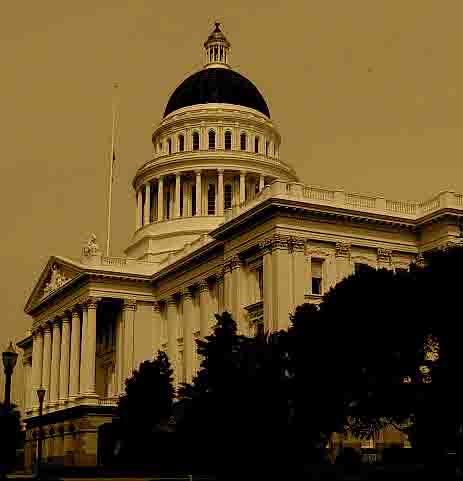Are human beings equal in essence?
1.) Yes in essence they are equal. They are equal in the making as they are all created in the image of God. And they are equal in the fall as the sin of Adam affects all (Rom. 3:23). They do however each have different gifts that make each individual more or less capable. This does not make any person better or worse than any other, just more capable. These gifts are acknowledged by the people be having them elect that person to a governing position. In terms of things physical, no two men are in any way equal. Everyone develops in their own way, some smarter, some stronger, some fasters, some more enduring. But in terms of man’s essence as carriers of the image of God, all men reflect his whole image and are equally love by him. One could argue that the “essence” of man is his soul, in which case all men have them and all are in equal need of salvation.
Do men have natural rights?
2.) Yes they consist of life liberty and property. This concept is supported by the Ten Commandments (Deut. 5:6). Individual political freedom is not important to the Christian. The Christian can live a life honoring to God in any form of society. It may be easier or more difficult depending on the form of government and the ability for individuals to become involved but they are actually able to do their best any time anywhere and under any circumstances. There is a difference between liberty and freedom. God commands us to subdue the earth. We are commanded to prosper and to do that which our soul delights in (Psalms). Pursue the peace of the nations (Jeremiah).
What is the purpose of government?
3.) To restrain evil. To punish the guilty and defend the innocent (Romans 13). To administer justice. God has appointed all those in authority so we can expect that He has a purpose for it. The scripture tells us that rulers are a terror to evil. Verse four says “For he is God’s minister to you for good. But if you do evil, be afraid; for he does not bear the sword in vain; for he is God’s minister, an avenger to execute wrath on him who practices evil.”
Why should subjects/citizens obey government?
4.) Because it is for their own good (Matt. 22:17) and for the good of the society. It is the government that they have been placed under by God. God commands us in Romans 13 to obey those in authority over us.
Who should rule?
5.) The concept of the people ruling is supported by the New Testament in that the church has government. This also supports oligarchy in the eldership so we can make a case for constructing a government where the people choose their leaders. Deuteronomy 17:18-19 supports a constitutional government. We can with the suggestions made in scripture come up with a system very close to the one we have here in the US.
What is the “best” type/form of government?
6.) An oligarchy would be the best, not perfect only the best. It must be a capitalist society (1Tim 2:6) that works hand in hand with democracy. The early church will be our model for government with an eldership as the ruling body.
What is justice?
7.) Justice is the giving of what is deserved. Abiding to the laws that are set in relation to you and other men. Getting what is due in accordance with the law be that a punishment for evil or reward for good. Jesus fulfilled ultimate justice for His bride the Church
Does government have any responsibility for morality?
8.) Yes it does. We must draw a line here for distinguishing what issues the government is responsible for. We can find a good model in Ten Commandments (Deut. 5:6). This includes murder, stealing, adultery, lying, covetiousness? In Romans 13 it seems to indicate that morality is part of the responsibility of government in verse 9.
What implications does the Fall of man have for human government?
9.) Man is sinful and can do nothing perfectly. Man can’t create a perfect society or government. He also needs to be restrained because his thoughts are always evil continually (Gen. 6:5). Sinful man in government needs to be restrained as well. We can see an outline for this in Isaiah 33:22. Our founders recognized that man needed to be held responsible for his actions and that is how we got our system of checks and balances.
What implications do rewards and punishments in the after-life have for human government?
10.) Virtuous motivation of a desire to do good and therefore making society a more peaceful place. When every one believes that they will be punished or rewarded in the afterlife according to their actions here on earth and their standing with Almighty God they will act differently than if they had no knowledge of such things. The society will be much more peaceful and God honoring (John 14:15 “If you love me you will keep my commandments.” This would include “love your neighbor as yourself”). God will ultimately hold man responsible for his actions and when men realize this they tend to try to be “good people.”
Saturday, December 13, 2003
Subscribe to:
Posts (Atom)



